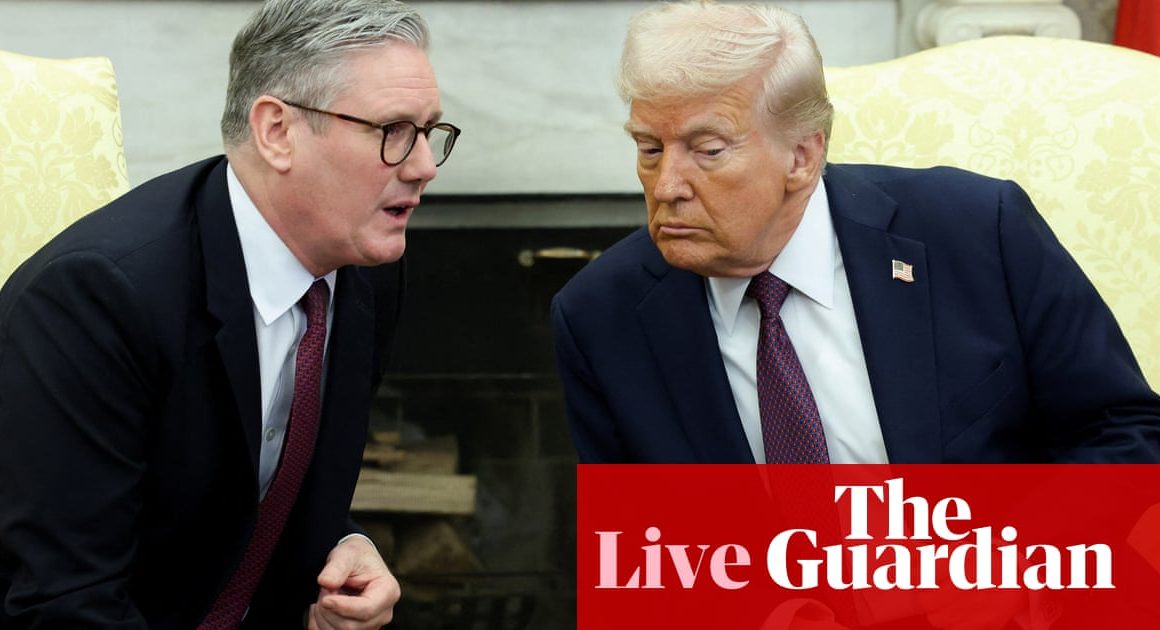As many as one in six workers in Britain are skipping meals to make ends meet as households remain under pressure from the higher cost of groceries, energy and other essentials.
Highlighting the impact of the cost of living crisis on working households, figures from the Trades Union Congress (TUC) showed 17% of full- or part-time workers had skipped a meal to reduce their spending in the past three months.
According to a survey of more than 2,500 working adults by YouGov in the week before Christmas, carried out on behalf of the trade unions’ umbrella group, as many as one in 10 said they had skipped a meal every day or most days.
The TUC said its findings showed the legacy of “14 years of Tory stagnation” and highlighted the importance of Labour’s plans to strengthen workers’ rights as part of the most radical shake-up of employment law in a generation.
Keir Starmer’s government is coming under mounting pressure to find ways to grow the economy after a week of turbulence in the financial markets sent the UK’s borrowing costs to the highest levels in decades.
The chancellor, Rachel Reeves, has asked her cabinet colleagues to draft plans for boosting growth amid concerns that the rise in borrowing costs, alongside a weak outlook for the economy and stubborn inflation, could force her to break her own fiscal rules.
Reeves is understood to have held meetings with business leaders last week to underscore her priority to “work in partnership” with firms. A senior Treasury source said firms had also been asked to submit their growth policy ideas, before the chancellor gives a major speech later this month.
Reeves is believed to be exploring cuts to public spending among options to balance the books, amid warnings that the sharp rise in borrowing costs could sweep away all of the £10bn buffer against her fiscal rules kept in reserve at the autumn budget.
Union leaders are fearful that the government could face pressure from industry groups to water down the package of workers’ rights reforms as a “cost-free” option for helping businesses to navigate a perilous economic outlook.
Business leaders have stepped up their lobbying on the issue in recent weeks, complaining they have been treated like a “cash cow” since Labour came to power. They have said that jobs and growth will be hit by the chancellor’s £25bn increase in employer national insurance contributions and rise in the minimum wage announced at the budget.
Paul Nowak, the TUC general secretary, has urged Labour to “stick to its guns” on the reforms to workers’ rights, which include banning zero-hours contracts and introducing protections on day one of a job.
Union leaders believe raising employment rights would make Britain’s economy more productive by handing more security to workers in their jobs, while also putting more money in their pockets to spend on goods and services.
after newsletter promotion
“After 14 years of Tory chaos and stagnation, we urgently need to boost living standards and to get more money into people’s pockets. This is vital for workers and for local economies too,” Nowak said. “We cannot continue with the same broken status quo.”
Average wage growth has risen above inflation in the past year, helping working households to repair their finances after the biggest hit to living standards on records dating back to the 1950s.
However, prices for groceries, energy and essentials remain significantly higher than before the cost of living crisis took hold. Pay growth over the past 15 years has also left workers worse off than if wages had continued to rise at the rates seen before the 2008 financial crisis.
The TUC said real wages had grown by only 0.3% a year under the Conservatives, compared with 1.5% from 1997 to 2010. At the same time, in-work poverty rose sharply, while the number of people in insecure jobs soared by 1 million between 2011 and 2023 to 4.1 million.
“Every worker deserves to earn a decent living. But many working households are struggling to make ends meet,” Nowak added. “That’s why the government’s ‘make work pay’ agenda is so important.”












